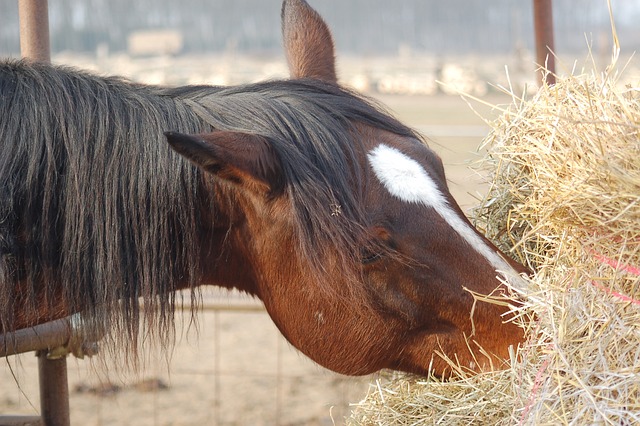
When it comes to feeding our horses, one of the most important decisions we have to make is whether to provide them with forage only, grain only, or a combination of both. But which option is best for our horses? In this article, we will explore the benefits and drawbacks of each feeding method. Also shed light on what constitutes a healthy diet for these magnificent creatures.
Forage Only: Pros and Cons
- Forage is the major source of protein.
- Hay is an excellent source of vitamin D and B vitamins.
- Live grass is a rich source of omega-6 and omega-3.
- Forage alone cannot meet the needed calories and carbohydrates for horses doing physically demanding work.
- Hay has fewer calories and carbohydrates than live grass.
- When hay is cured, it rapidly loses vitamins C, E, and, over time, the vitamin A precursor carotene. Cured hay also loses its omega-3.
Grain-Only Diet: Pros and Cons
- Grains are low in omega-3 and high in omega-6.
- Grains are not inherently balanced, but manufacturers can add what is needed to help meet minimum levels.
- Grains can help meet the calorie and carbohydrate requirements for horses doing demanding work.
Combination Diet: Finding the Right Balance
Hay or grass contains all the nutritionally essential minerals, although not necessarily in the correct minimum amounts or ratios. Grains are not inherently balanced either, but manufacturers can add what is needed to help meet minimum levels.
Tip: The best technique to determine what should be added to the diet to balance hay is through hay analysis. To find out the typical values for the regions where the hay was grown, you can also contact your local agricultural extension agent or the state agriculture department.
Conclusion
In conclusion, forage is essential for the health and well-being of horses, but it may not provide all the necessary nutrients for an active or working horse. On the other hand, a grain-only diet can lead to numerous health issues and should be used sparingly. The best approach seems to be a combination of high-quality forage and balanced grains to meet the specific needs of each individual horse.
Reference:
https://drkhorsesense.wordpress.com/2023/06/12/whats-in-your-hay/
